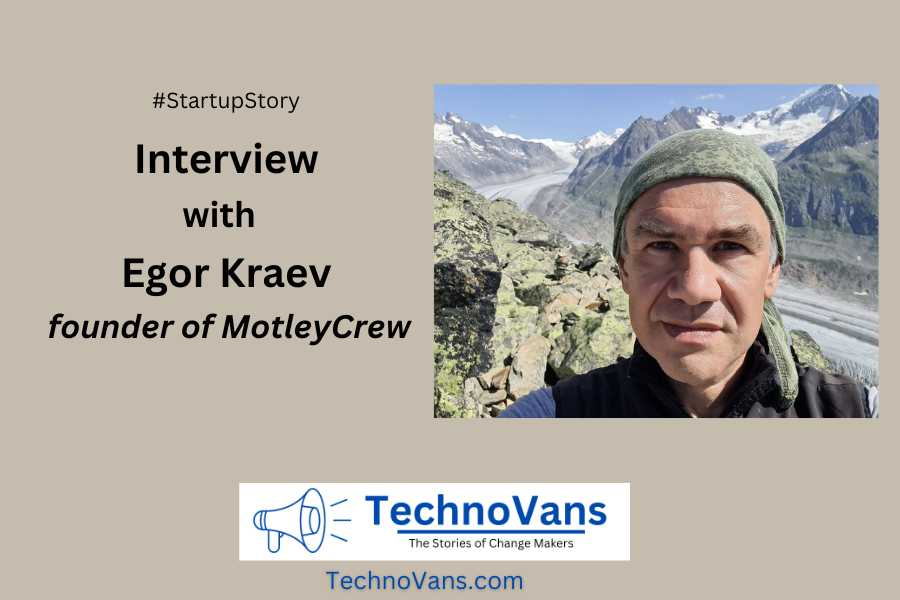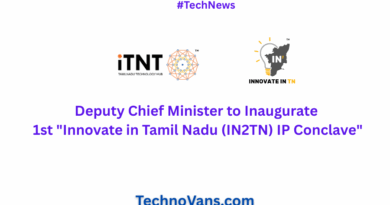MotleyCrew – Changing the landscape of complex AI system building
In this interview, Egor Kraev talks about MotleyCrew platform he has created it by applying his experience in machine learning. MotleyCrew platform simplifies the process of building multi-agent systems. Let’s jump into the conversation with Egor where he talsk about how he has started this platform and what challenges he has faced till this date. There is a lot to learn from him about his startup journey.

Interview with Egor Kraev, founder of MotleyCrew
Can you please tell our readers about yourselves?
I ( Egor ) have been applying machine learning to real-world problems since last century, including economic and human development data analysis for nonprofits in the US, the UK, and Ghana, and 10 years as a quant, solutions architect, and occasional trader at UBS then Deutsche Bank.
Following last decade’s explosion in AI techniques, I became Head of AI at Mosaic Smart Data Ltd and then at Wise. Since over four years, I’m bringing the power of AI to bear at Wise, in a variety of domains, from fraud detection to trading algorithms and causal inference for A/B testing and marketing, and now in multiple GenAI projects across the company.
Since September 2024, my role at Wise is part-time to enable me to work on motleycrew.ai.
My partner, Artem Belousov, is an experienced software engineer with a strong background in computer science and mathematics. Before joining me at motleycrew.ai, among various software and ML projects, he worked at Yandex for 3 years, building analytics tools and automated quality metrics for one of the largest search engines in the world.
Why did you choose that particular domain for your startup?
We believe that multi-agent is the approach that will take GenAI to the next level. Almost all real-world problems to be solved with GenAI require acting on some kind of feedback from the environment – which is what agents do. And in most cases, real-world problems are too complex to be described in a single prompt – thus, multi-agent systems are critical.
But once you have multiple agents, how do you determine which ones to use, and how they interact with each other? Those decisions are called agent orchestration, and that’s where we think we see a gap in existing frameworks.
When we looked at existing open source multi-agent orchestration frameworks, we found them to be either not flexible enough in the kinds of orchestration they offered, or really complex to setup for even the simplest applications.
Most importantly, all the multi-agent frameworks we’ve seen assumed that you would also use their agent implementation. That is very limiting, as building good agents is hard, and the best orchestration framework needn’t be the one with the best agent implementation.
Tell us about your startup MotleyCrew. What’s the major problem you are solving? Why do your customers select you over your competitors?
Our mission is to make constructing a multi-agent setup really nice for the developer, combining ease of use for the most common usecases with maximum power and flexibility for the more unusual ones.
To address the gaps described in the previous section, we offer a way to mix and match agents from all the most popular frameworks, while making their interaction both easy (for example, you can just give agents as tools to other agents, which we haven’t seen elsewhere) and flexible ( for example, agents can create tasks for each other via a knowledge graph ).
Another thing that sets us apart from a lot of multi-agent projects out there is a focus on high-quality, well-documented code with lots of examples.
Why open source, and how do you aim to monetize?
We believe that foundational technologies – and multi-agent orchestration is definitely one – thrive best when they are open. This way, every user can inspect their workings, and contribute solutions for cases we haven’t thought of.
On the other hand, domain-specific products (for example, regulatory reporting) may work better as closed-source solutions, so while MotleyCrew will forever remain open source, we plan to use it as a foundation for specific closed-source solutions.



